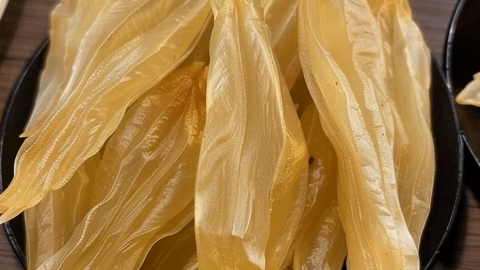Does fish bladder help in postoperative recovery?
Generally, fish bladder may be beneficial for individuals whose gastrointestinal function has recovered well after surgery and who have no special dietary restrictions. However, it may be detrimental for those with poor postoperative digestive function or allergies to fish bladder. Detailed analysis is as follows:

If gastrointestinal function has largely recovered after surgery and there is no allergic reaction to fish bladder, moderate consumption can provide collagen and protein, which supply essential nutrients for tissue repair, thus offering some support to the recovery process.
However, if symptoms such as abdominal distension or indigestion persist after surgery, the high protein content in fish bladder may increase the burden on the gastrointestinal tract and interfere with nutrient absorption. Additionally, if an allergic reaction exists, consuming fish bladder may cause discomfort. In such cases, it will not only fail to promote recovery but may also delay the healing process.
Fish bladder should be thoroughly cooked to avoid undercooked consumption, and should not be eaten in large quantities at one time. Postoperative dietary intake should follow the principle of gradual progression. If discomfort occurs after consumption, it should be discontinued and the symptoms monitored; medical advice should be sought if necessary.









